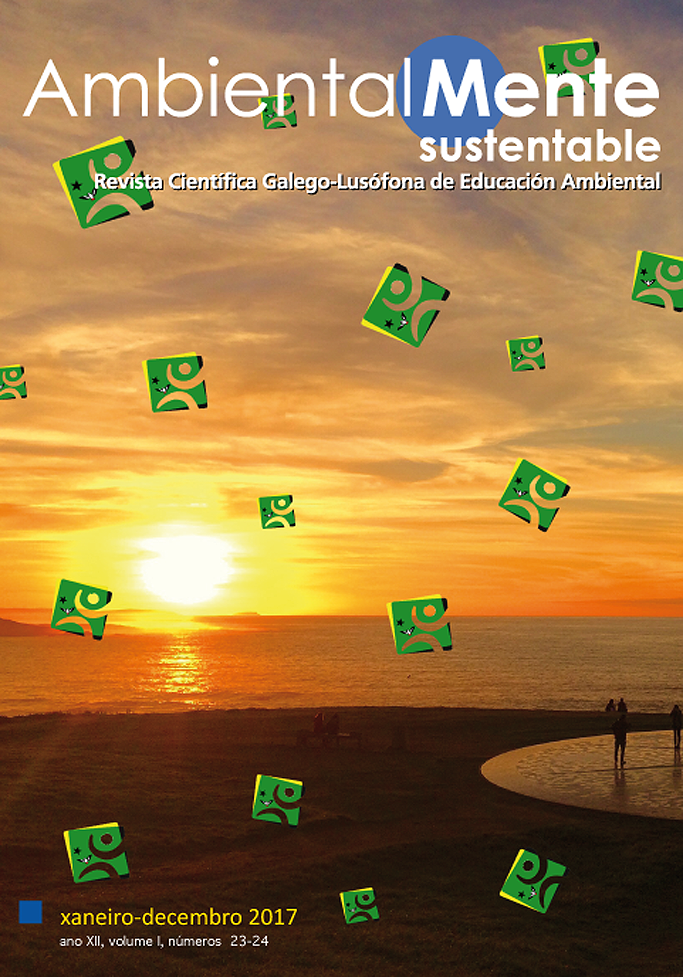Sustainable Management of Urban Solid Waste in São Tomé and Príncipe: Contributions of Environmental Education
Main Article Content
Abstract
In São Tomé and Príncipe, changes in lifestyles and consumption patterns have led to an in-crease in the import and marketing of a wide variety of packaged products, leading to an in-crease in the production of solid urban waste. As an island country, waste management has been a major problem. For this reason, environmental education projects are more urgently needed to stimulate reduction, reuse and separation at source. The aim of this study is to know the uses that the people who go to the dump make of the collected residues and the economic importance of this activity for the families, to sensitize the different agents related to the waste management to the importance of the prevention and reduction of waste production. A questionnaire was applied to the residents of the Wastebasket and an interview was held with the representatives of the District Chambers of Água-Grande and Mé-Zochi. An action was taken to sensitize the children attending the nearest school. The results show that there is widespread awareness of the adverse consequences of direct handling and non-treatment of waste, but perpetuates its collection for economic reasons and the lack of more restrictive management rules.
Keywords:
Downloads
Article Details
References
Bogdan, R. & Biklen, S. (1994). Investigação Qualitativa em Educação: uma introdução à Teoria e aos Métodos. Porto: Porto Editora, Lda.
Fernandes, J. A. (1982). Educação sobre o Ambiente um Contributo para o Desenvolvimento Integrado. Aprendizagem/Desenvolvimento. Lisboa: Instituto Piaget.
Fernandes, J. A. (1983). Manual de Educação Ambiental. Lisboa: Secretaria de Estado do Ambiente.
INE - Instituto Nacional de Estatística (2012). Quarto Recenseamento Geral da População e da Habitação. São Tomé: Ministério do Plano e Finanças.
Mário, T. V. & Nuvunga, S. (2012). Estudo sobre as metas do desenvolvimento do milénio nos países da CPLP. Terceiro Relatório de Progresso 2012. Fundação para o Desen-volvimento da Comunidade (FDC).
Martins, M. C. (1996). Atitudes dos Jovens Face ao Ambiente: Perspetiva diferencial e de-senvolvimentista. Dissertação elaborada para obtenção do grau de Mestre. Lisboa: Uni-versidade de Lisboa.
Morgado, F., Pinto, R. e Leitão, F. (2000). Educação Ambiental–Para um Ensino Interdisciplinar e Experimental da Educação Ambiental. Lisboa: Plátano Edições Técnicas.
ONU (2015). Agenda Pós-2015. Rumo à agenda de desenvolvimento sustentável. Consultado em http://nacoesunidas.org/pos2015.
RDSTP (2013). Preparação à Terceira Conferência Internacional sobre o Desenvolvimento Sustentável dos Pequenos Estados Insulares em Desenvolvimento, Ápia, Samoa, 2014. Relatório Nacional. São Tomé: República Democrática de São Tomé e Príncipe.
SIDS (2014). Report of the Expert Group Meeting on Small Island Developing States and the Post-2015 Agenda, New York, 23-24 April, 2013. Disponível em: http://www.sids2014.org/content/documents/187SIDS%20and%20post2015%20EGM%20FINAL%20(2).pdf.
TESE (2010). Plano Nacional de Gestão Integrada de Resíduos Sólidos Urbanos - São Tomé e Príncipe 2010-2015. Capítulo 1 Diagnóstico e Caracterização. S. Tomé: Ministério de Assuntos Exteriores e de Cooperação & Agência Espanhola de Cooperação Interna-cional para o Desenvolvimento.
TESE & EcoGestus (2011). Plano de Ação para a Gestão Integrada de Resíduos Sólidos Ur-banos - São Tomé e Príncipe 2011-2016 (PA- GIRSU). Volume III – Plano de Acção S. Tomé: Ministério de Assuntos Exteriores e de Cooperação & Agência Espanhola de Cooperação Internacional para o Desenvolvimento.



